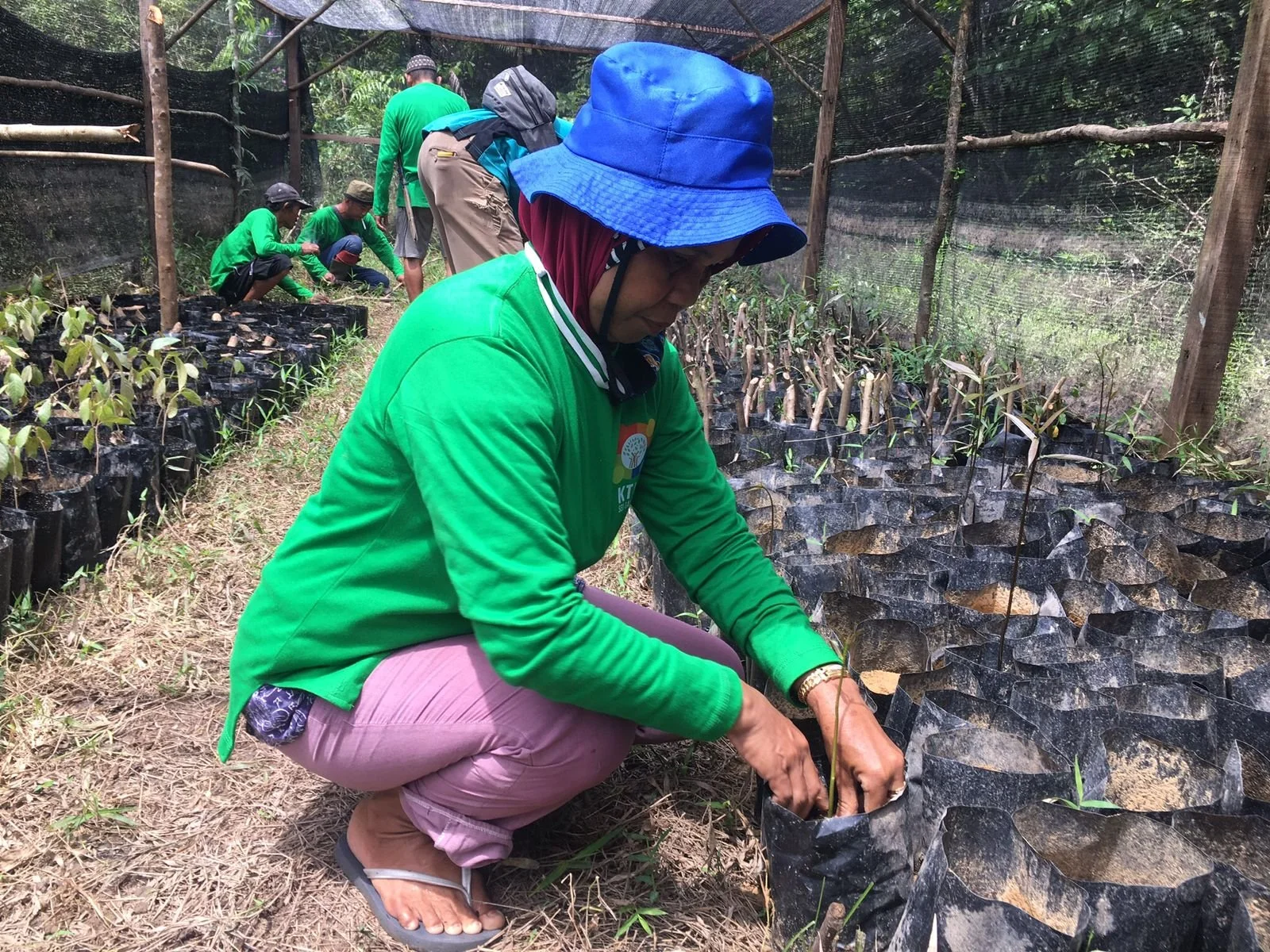Sustaining Progress in Indonesia: A Third Year of Impact with Kaleka
Last year, we shared a story of progress. A story of how the Mosaik Initiative – led by Kaleka and supported by ASD Members – was cultivating systemic capacity for a sustainable palm oil landscape in Indonesia’s Central Kalimantan.
In the 12 months since, the work has deepened, expanded, and evolved. It’s not just about impact anymore. It’s about momentum.
We’re proud to update the ASD community on our third year of collaboration with Kaleka, and the launch of a new scope of work focused on social impact. With every village reached, every forest restored, and every smallholder supported, we are moving closer to a shared goal: a more responsible, inclusive, and resilient palm supply chain.
Selection and checking of restoration in Pematang Limau, Kab. Seruyan, Central Kalimantan
Scaling what’s working
Now kicking off its fourth year of partnership with ASD, the Mosaik Initiative continues to support the long-term transformation of Seruyan and West Kotawaringin Districts, where palm production is both an economic lifeline and a sustainability challenge. This year’s highlights reflect a growing maturity in the programme’s approach, shifting from early groundwork to scalable implementation.
During the third year of ASD’s support, around 260 smallholders across five priority villages underwent Rountable on Sustainable Palm Oil (RSPO) audits and are expected to reach certification this year, setting a precedent for jurisdictional certification at district level.
Meanwhile, the project has restored more than 100 hectares of degraded land, planting high-value, native crops such as agarwood, rubber, nutmeg, and patchouli, all selected based on agroecological and market suitability.
With the establishment of a Product Development Center, Seruyan now has the capacity to process and distill essential oils, such as patchouli, unlocking new income streams. Eight kilograms of essential oil have already been produced, with commercial buyers secured.
Community-based efforts have led to the designation of nearly 6,000 hectares of critical forests for protection, including 1,749 hectares proposed this year in Mendawai Seberang village, achieved through participatory mapping and village spatial planning.
Village-owned enterprises alongside Kaleka’s social enterprise are creating local structures to manage nurseries, facilitate marketing, and deliver long-term benefits from regenerative land use.
A new chapter: Embedding social impact
This year also marked a turning point in the ASD-Kaleka partnership. Building on nearly three years of trust, we expanded our support to include a focused stream of work on social impacts, especially in relation to land rights and labour rights.
Why does this matter? While environmental outcomes are often easier to quantify, social outcomes are essential to long-term system change. Strengthening workers’ rights, protecting Indigenous land, and ensuring inclusive decision-making are foundational to ethical palm supply chains.
Within just the first six months of ASD’s support to these new activities, there are now 190 trained paralegals active across 38 villages, supporting legal documentation, land tenure processes, and FPIC (Free, Prior and Informed Consent) implementation. These local champions are playing a vital role in reducing disputes and empowering communities to protect and define their land.
There is now a new conflict resolution platform, upon which 88 plantation-related conflicts have been registered. This has been built to track, triage, and resolve disputes collaboratively, and village governments and local authorities are being trained to manage the process. In collaboration with trade unions and employers, 13 companies have now formed Bipartite Cooperation Institutions, and nine have created Gender Committees, driving better dialogue, fairer working conditions, and more inclusive representation in the sector.
Elsewhere, draft social impact indicators – co-developed by Kaleka and district stakeholders – are currently under review and will inform Seruyan’s upcoming RSPO jurisdictional certification, ensuring social safeguards are embedded alongside environmental goals.
Inside the Mendawai Seberang Nursery
Connecting social and environmental progress
One of the key insights from this year is how deeply interconnected these two scopes of work are. Regenerating ecosystems and restoring degraded land becomes far more durable when local communities are empowered, informed, and protected. Conversely, social stability and wellbeing are strengthened when land is managed sustainably and livelihoods are diversified.
By linking these agendas, the ASD-Kaleka collaboration is pioneering a more holistic model for landscape transformation – one that other regions and supply chains can learn from.
The momentum is real, but there is still much more to do.
In the year ahead, ASD will support the scaling of FPIC and land rights documentation across another 15 villages, the expansion of agroforestry systems to cover more hectares, and the roll-out of new Collective Bargaining Agreements between workers and palm growers. We’ll also deepen our learning and evaluation, sharing back best practices and scalable models with the broader ASD network.
What’s clear is that sustainable change doesn’t come from one actor or one initiative alone. It’s the result of long-term investment, deep listening, and partnerships built on trust. From farmers and field trainers to paralegals, processors, and policymakers, this work is powered by the people closest to the land – and we’re proud to stand beside them.


